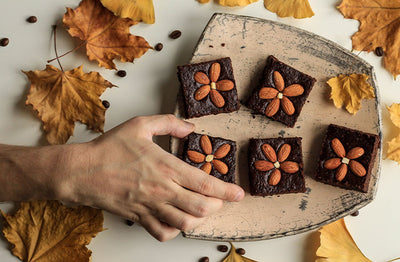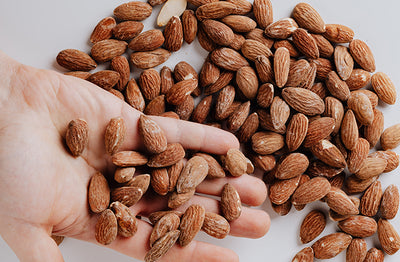You’ve probably heard of fibre, and know it’s good for you, but have you ever wondered
why it’s good for you, and
why it’s important to get enough?
What is fibre?
Dietary fibre is something found in plants, it’s a type of
carbohydrate that your body can’t absorb. You get it when you eat most cereals, fruits and vegetables.
Fibre comes in two types; Soluble and Insoluble.
Insoluble fibre — sometimes referred to as roughage or bulk — is the best type for relieving constipation (provided you are drinking enough fluids to keep everything moving well). Good sources of insoluble fibre include whole-wheat flour, wheat bran, certain vegetables, and nuts.
On the other hand,
soluble fibre is the best type of fibre for improving cholesterol and blood sugar levels. This type of fibre combines with water to form a gel, and can help slow down the absorption of sugar. It is found in foods such as oats, citrus fruit, barley and beans.
Why should I eat it?
You need fibre for good
general health, so it’s important to get enough of it. It will help everything in your digestive system keep moving along at a nice pace, and keep you feeling full for a longer time. High fibre foods are also often full of other nutrients that you need for general well being also.
What does it do for me?
Having fibre in your diet is like having your own set of civil engineers for your digestive system. It goes down there and makes sure your insides are clean and healthy, and that everything is moving along like it should be.
Because fibre isn’t absorbed like other carbs, it takes up room in your stomach, which means you feel fuller. If you feel full, you’re less likely to snack on more food, and more likely to resist cravings. This bit can be really helpful if you’re changing to a strict eating schedule.
Also, by slowing down your sugar absorption, you won’t get those nasty sugar crashes that can sometimes happen.
How often should I eat fibre?
Always. Eating fibre in some form with every meal is vital. Fortunately, it’s really easy to get fibre in your diet, even if you are on a strict
low carb diet as long as if you’re eating healthy. Fruit, vegetables and grains all have fibre, and you should be having some of those in every meal anyway!
What if I eat too much of it?
You’ll poop
a lot. Damn, I was going so well, I was able to avoid a poo joke for over half the article.
While we’re at it, you may as well know that you’ll fart a bit more too. And they will stink so bad that they could peel paint from the hull of a battleship.
Your body will adjust though, but be aware, if you’re going from a diet low in fibre to one containing little else
BUT fibre, your bum will make it’s feelings known. Usually at the most embarrassing time. This will settle down after it adjusts, and you'll find it a bit easier to be in public without having a nearby animal to blame.
What if I eat too little of it?
Ever bought those little glass jars of spices and had them turn into a solid mass in the container? You’re here holding a mix of cajun seasoning over your steak and belting the bottom of the jar to try and break it up enough that it comes out the small holes in the top?
Well, THAT is what happens to your colon without enough fibre. Everything sticks together and doesn’t move well. You’ll also have a harder time passing solids without making the same sounds you do while deadlifting. Seriously, it’s a terrible idea to avoid fibre. Don’t abuse your digestive system like that.
Is it safe for women too?
Fibre is very, very safe for women, and highly recommended. You won’t get “gassy” unless you eat too much fibre, so you’ll still be able to claim you’ve never farted in your life.
Conclusion:
Fibre is a necessary addition to your diet, and likely one you already have in it. If you find yourself feeling a bit bloated, heavy or ‘blocked’, try getting a bit more fibre in your diet. But don't take too much fiber for your
pre-workout to avoid gas related mishaps.
Read More:















